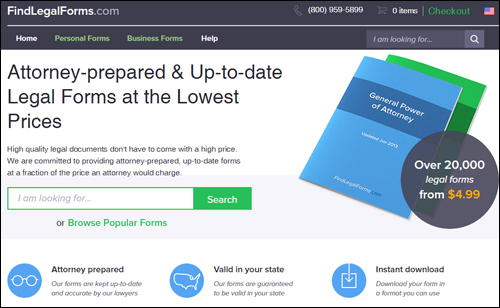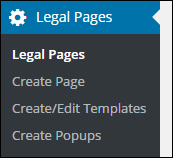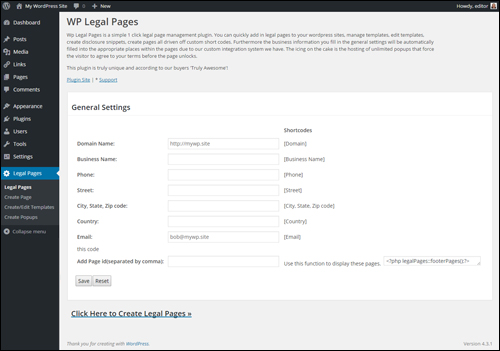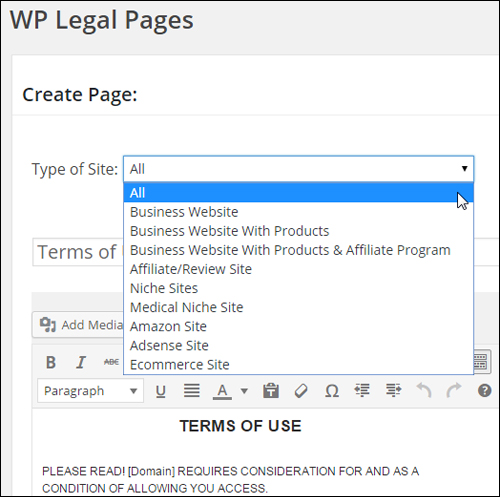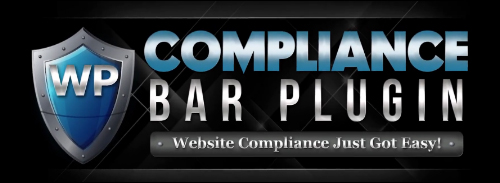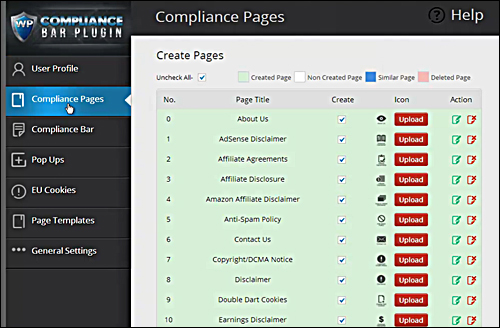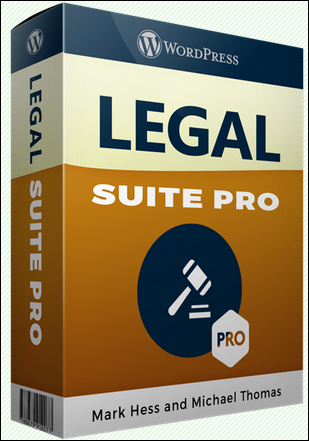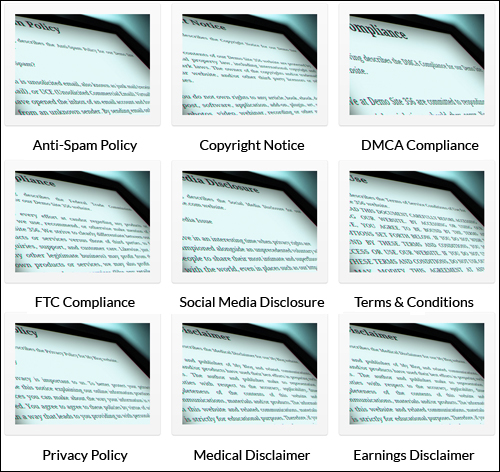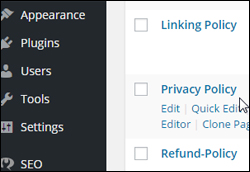
If you plan to grow a successful business online, the last thing you want is to learn the hard way that you have broken the law.
Internet laws were designed to protect the rights of consumers and apply to any person who markets, sells or promotes products or services online. Every website owner risks being sued for not following compliance laws. Feigning ignorance about legal requirements won’t prevent you from being slapped with a legal notice.
Recent laws introduced in 2014 regulating how businesses promote advertising on their sites state that if you promote anything on your website for profit, you need to follow certain principles of disclosure to prevent enforceable orders being issued against you by regulatory agencies, such as the Better Business Bureau, also referred to as BBB. Do a search online for “The Online Interest-Based Advertising Accountability Program,” which regulates behavioral advertising across the internet for more details.
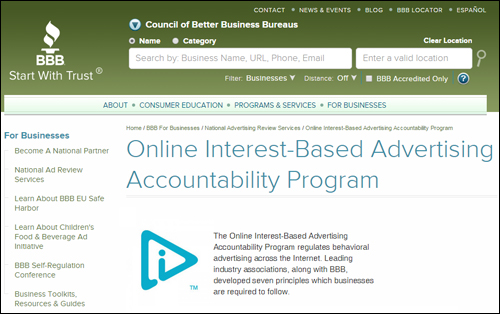
(Online Interest-Based Advertising Accountability Program)
These laws has legal ramifications for several online business activities, including:
- Any kind of advertising, e.g. display advertising
- Retarget Marketing
- Google Analytics (or other analytics software)
- Affiliate Marketers
- Product Creators
- Blogging
- etc.
Without certain legal pages on your website (e.g. terms and conditions of use, privacy statement, financial disclaimers, etc.), many third-party sites such as Google won’t let you advertise, online merchants like ClickBank won’t allow you to list digital products, PayPal may suspend your account and freeze your funds, Facebook will reject web applications, and you won’t be allowed to participate in most advertising or online merchant networks.
Additionally, you could also be inadvertently leaving yourself open and vulnerable to legal action.
This guide explains why it’s important to have a legally compliant website and how to quickly and easily add all necessary legal pages to your site using simple resources and solutions.

Is Your Website Breaking Rules Or Regulations?
![]()
Legal Disclaimer: We are not lawyers and we do not provide legal advice. You must do your own due diligence and we recommend consulting legal experts about the best way of ensuring that your website is compliant with all legal requirements wherever your business operates in.
Why Having A Compliant Website Is Important
Consider for one moment what could happen to your business if these scenarios were to occur:
- Someone has a cardiac arrest after using your online fitness workout.
- The skin cream you promote as an affiliate marketer gives people an allergic reaction.
- Your opt-in list displays a statement that lets subscribers know that you will not sell their information, but you have not clearly informed them what you will do with their details.
- Someone copies content from your website and publishes it on their website.
- There is no statement on your website or blog letting your visitors know that you’re an affiliate for the product you are promoting that you will earn an affiliate commission if they end up purchasing through your affiliate link.
- You don’t spell out the terms of your refund and return policies.
- A visitor claims that your testimonials are all fake and tries to sue you.
- You didn’t disclose in a product review that you received a free copy of the product.
- Your site publishes adult-related content and you didn’t take sufficient measures to restrict access by underage persons.
Consider now the documented examples of costly compliance breaches below:
- A CPA Marketer failed to provide adequate disclaimers telling online users they would be required to give up their personal information (including credit card information to complete an offer they were promoting. In addition to a hefty $390,000 fine, they’ve also been ordered to give a copy of the judgement to everyone they do business with for the next 20 years — including employees.
- A social networking app developer copped a whopping $800,000 fine for collecting personal information without users’ knowledge and consent – including storing private information about children.
- Facebook’s Terms Of Service prohibits using software that scrapes UIDs. Many marketers took a risk and lost. Their accounts were shut down, resulting thousands of dollars in lost revenue.
- An independent 2010 study by Brad Geddes of SearchEngineLand, showed that, of a couple of hundred websites chosen at random, more than 90% had broken at least one of Google’s policies, more than 65% had broken at least two of Google’s policies, and more than 40% had breached at least 3 of Google’s policies. Although the website owners could technically be sued by Google, more than likely what could happen, is that they would be issued cautions or lose access entirely to the Google program whose policies they had violated, which could result in loss of income (e.g. AdSense or AdWords).
Can you see how easy it is to risk being exposed to non-compliance?
Regardless of whether you are a:
- CPA Marketer
- Multilevel Marketer
- Affiliate Product Promoter
- AdWords Advertiser
- Info Product Publisher
- Amazon Associate
- EBay Seller
- Adult Content Publisher
- Provider Of Freelance, Coaching Or Consulting Services
- Online Seller Of Any Service Or Product
it’s important to make sure that your website stays fully compliant with the law.
Complying With 3rd-Party Services Terms And Policies
Leading online companies and government regulatory agencies emphasize the need of observing the terms and policies of service providers.
You are obligated to let your visitors know that your business complies with all necessary laws and recommended guidelines. This not only increases consumer trust and buyer confidence in your website, it’s also required by most companies you will do business with.
Let’s take a look at some examples:
Google requires websites to display legal information if using their services. This includes using services such as Google Analytics …
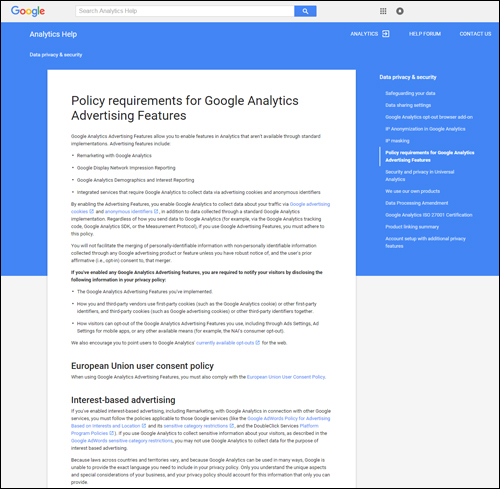
(Policy requirements for using Google Analytics)
Generating revenue with your site using Google AdSense online advertising …
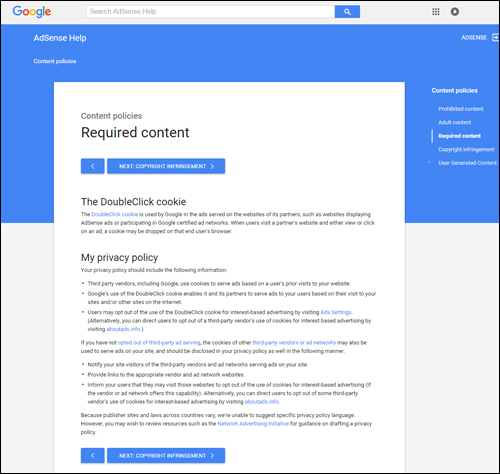
(Google AdSense ads policy requirements)
And even promoting your business using Google AdWords …
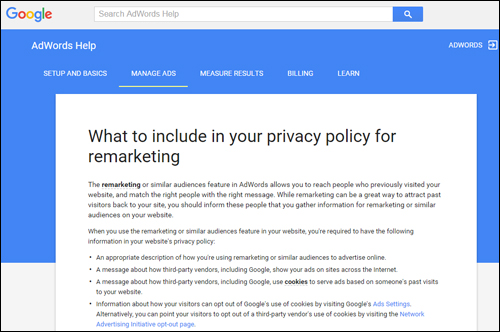
(Google AdWords – Policy Requirements)
If you sell products online with companies such as ClickBank, JVZoo, or other established merchant networks, you are required to add legal pages to your website before they will approve your products for selling via their marketplace …
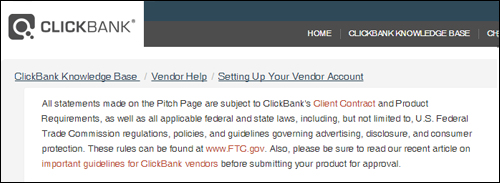
(Policy requirements for using ClickBank)
The FTC (Federal Trade Commission) also requires you to include clear disclaimers and policies on your site, especially when using product testimonials or endorsements …
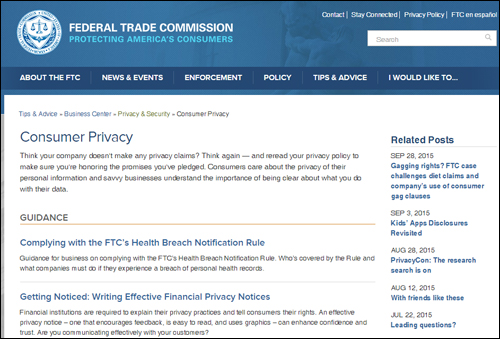
(Federal Trade Commission – consumer policies and regulations)
FTC Regulations – Ensure That Your Site Is Compliant
New FTC regulations governing the conduct of businesses online were introduced in March 2012. A quick search online will easily reveal that many sites are still unaware (or choose to flaunt) these requirements. As documented on their website, this typically results in the FTC making an example of businesses and prosecuting site owners in an effort to get other businesses to comply.
If you do any type of money-making activity online, therefore, it’s best not to take chances. Even if your business is not physically located in the U.S. you should protect your business interests by ensuring that your website is compliant with FTC regulations.
There are many online business resources that can provide guidelines for structuring disclaimers and disclosures to help your site meet FTC requirements. See the resources section at the end of this article for more information …
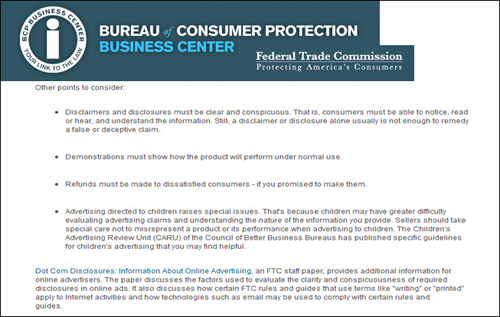
(It’s important to word your disclaimers and disclosures correctly to avoid running foul of laws and regulations)
Don’t Forget Social Media Applications
If you plan to develop social networking applications that will integrate with your site, social networking sites like Twitter, Facebook, and many others require you to provide access to various legal pages …
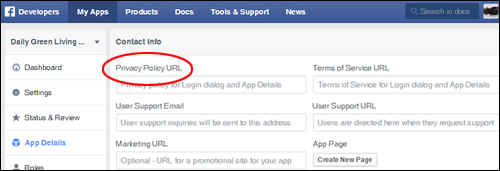
(Facebook developer app – policy requirements)
![]()
- If you are unsure as to whether you may be breaking the law, and/or Terms of Service policies and guidelines of organizations like Google, Facebook, etc., it’s best to assume that you most probably are.
- If you plan to promote products or services on your site using affiliate marketing, or generate revenue with Google AdSense, ads for Amazon or eBay products, or driving visitors to your site using Google AdWords, etc., then find out exactly what kind of legal information you need to display on your site to comply with all Terms Of Service and policy requirements to avoid having your accounts suspended.
- If you have ever wondered whether “borrowing” a Copyright Notice is Copyright infringement, then it’s best to act now and take proper precautions to avoid becoming a magnet for litigation.
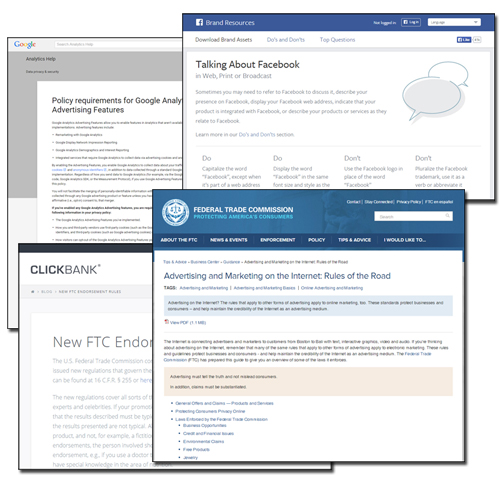
(In addition to legal and regulatory compliance, most 3rd-party services require you to comply with their policies and guidelines)
Common Legal Pages To Add To Your Site To Ensure Compliance
If you suspect that your web site is lacking in terms of compliance, then this section will help you.
At its most basic, adding the following compliance pages to your website should keep you out of trouble with most consumer protection authorities and third-party providers, and help to avoid potential legal issues or even threats of legal action (e.g. “take down” notices):
- About Us Page
- Contact Page
- Privacy Statement
- Terms Of Use
- Disclaimer Pages
- General Data Protection Regulation (GDPR) Compliance
In addition to the above, you may want to consider including one or more of the pages listed below where applicable:
- Affiliate Agreement (e.g. if you sell products or services through an affiliate program)
- Anti-Spam Policy
- Earnings Disclaimer
- External Links Policy
- Health Disclaimers (e.g. if your website or blog provides general information about health or medical areas)
- Refund Policy (if you run an e-commerce site)
- Audio/Video Terms Of Use (if you allow media downloads on your site)
Types Of Disclosure Pages
Adding the correct type of content disclosure is important. For example:
- No Material Connection – This lets your visitors know that you will not receive compensation for writing the content.
- Affiliate Links – Notifies visitors that you will benefit financially if they act on your recommendation and buy through an affiliate link.
- Review Or Sample Copy – Lets your visitors know that you have received a sample or review copy of the product or service by the author or developer.
- Sponsored Post – Disclosure that lets users know that you were compensated in some form to write the content.
- Third Party Advertising – Informs readers that you’re using online behavioral tracking technology. This is required to satisfy the “enhanced notice” the Better Business Bureau has been requiring online publishers to display prominently on their sites since January 1, 2014.
How To Add Legal Content To Your Site
Ideally, you will have a lawyer prepare the content of your legal documents. Once you have this done, there are several ways to add them to your website.
Upload Legal Pages To Your Site
If someone prepares the legal content for you in typical web page formatting (e.g. HTML), you can simply upload these to your server, or have someone upload these pages for you.
We recommend adding a legal folder to your web server and uploading HTML pages containing your legal documentation to this directory using FTP …
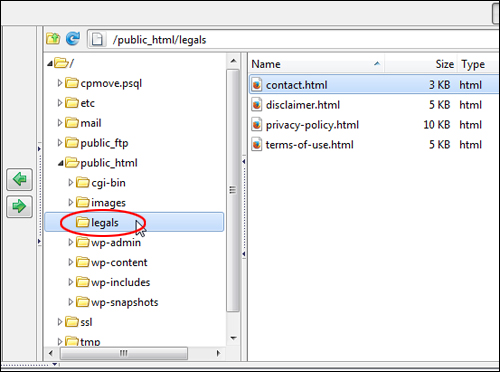
(Create a ‘legals’ folder in your web server and upload pages using FTP)
You can then easily add a link to these pages in WordPress using custom links in your menu admin area …
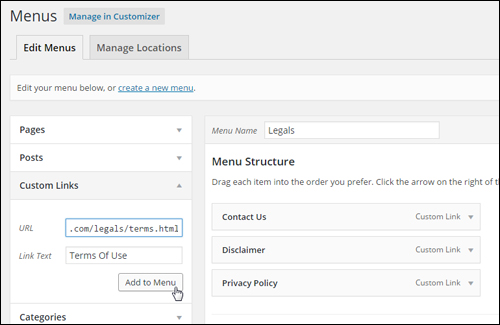
(Custom WordPress Menu Feature)
Make sure that your legal pages are fully up-to-date and display clearly to your visitors. You can insert links to your legal pages into the sidebar (or the footer of your site) so that users will be able to access legal information from all of your pages …
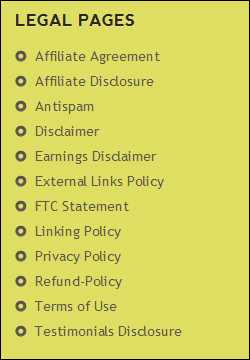
(It’s important to display links to your legal pages on all of your website’s pages)
If you need help adding links to pages on your WordPress sidebar or footer using widgets, refer to this step-by-step tutorial:
Legal Templates
You can find attorney-drafted disclosures and downloadable forms and agreements just by searching online, or by visiting websites like the ones shown below:
Find Legal Forms
More information:
Alternatively, you can download a package of website legal templates designed by attorney Scott Talbert …
Cut And Paste Website Legal Pages
(Cut & Paste Website Legal Pages – Website Legal Pages)
These legal templates were written by an attorney and feature less passive voice and more plain language phrasing and can be easily customized with a quick search and replace to add your own business name and URL, then pasted into your web pages.
The legal templates included in Scott Talbert’s Website Legal Forms include:
- Anti-Spam Policy
- Copyright Notice
- Disclaimer
- DMCA Compliance
- FTC Compliance
- Privacy Policy
- Terms of Service & Conditions of Use: includes inter- & intra-page redundancy, Contra Proferentem provision, reservation of rights, and exclusive social media admonition.
You can either create a new page for every legal form you want added to your website, then paste the content from the templates into your web pages and publish or upload these to your server as described previously.
More info:
Legal Page Plugins
In addition to using templates, you can simplify things using WordPress plugins.
Here are some legal WordPress plugins that you may be interested in using:
WP Legal Pages Plugin For WordPress
(WordPress Legal Pages Plugin For WordPress)
If you don’t want to spend time creating legal web pages manually, then consider choosing WP Legal Pages …
WP Legal Pages is not a free plugin, but it’s a reasonably affordable and well-supported premium plugin that will help make the task of creating and implementing legal pages on your site much easier and save you many headaches.
Here are just some of the reasons to consider using WordPress Legal Pages plugin:
- Built-in Legal Templates – The plugin gives you access to over 20 built-in legal page templates created by a team of professional lawyers.
- Quick And Easy To Use – Set up most of the legal pages you need in a few minutes with a few mouse clicks.
- Customizable Pages – The plugin includes fully customizable and easily editable legal form templates (e.g. Terms of Use, Disclaimer, Earnings Disclaimer, Privacy Policy and more!)
- Editable Pages – WYSIWYG editor lets you edit all legal pages like every other page on your site.
- Shortcodes – You can add shortcodes to your WordPress pages and the information is then automatically inserted into your pages when you publish.
- Exclude pages. The plugin lets you exclude pages from menus with a simple checkbox and delete and manage these like any other page on your site.
- Forced Options – Force page lockdown. Page unlocks only when users agree to your legal terms.
- New Features – More features get added to this plugin with every new version.
After installing WordPress Legal Pages, a menu item is added to your navigation area …
(WordPress Legal Pages Plugin For WordPress – Menu)
This lets you create, edit and view your legal pages from the admin area …
(WordPress Legal Pages – Settings Area)
With WP Legal Pages, you can create legal pages for different types of websites, such as business websites, niche websites, AdSense sites, etc …
(WordPress Legal Pages – Type of Site menu)
Select from a number of built-in legal templates …
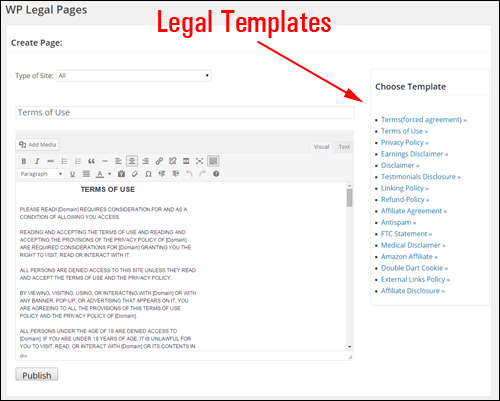
(WP Legal Pages Plugin – Built-In Legal Templates)
Legal page templates include:
- Terms of Use (Users are forced to agree to Terms and Conditions before using site)
- Linking Policy
- External Links Policy
- Terms and Conditions
- Refund Policy
- Affiliate Disclosure
- Privacy Policy
- Affiliate Agreement
- Facebook Privacy Policy
- Earnings Disclaimer
- Antispam Policy
- DoubleClick DART Cookies Policy
- Disclaimer Template
- FTC Disclosure Statement Template
- Medical Disclaimer Template
- Testimonials Disclosure – As per FTC guidelines
- Amazon Affiliate Disclosure Template
- DMCA Policy Template
- California Privacy Rights Policy Template
- Digital Goods Refund Policy Template
- COPPA – Children’s Online Privacy Policy Template
- Blog Comments Policy Template
- Newsletter Subscription Policy and Disclaimer Template
- FTC Disclaimer Widget
Visit the plugin site to learn more this powerful plugin:
Compliance Bar Plugin – Website Compliance Plugin For WordPress
The Compliance Bar WordPress Plugin is a complete compliance & disclaimer solution for your website …
For more details, visit the plugin site here:
Legal Suite Pro Plugin
(Legal Suite Pro Plugin For WordPress)
Legal Suite Pro lets you easily install professionally-written legal pages such as:
- Anti-Spam Policy
- Copyright Notice
- DMCA Compliance
- FTC Compliance
- Privacy Policy
- Social Media Disclosure
- Medical Disclaimer
- Terms And Conditions
- Earnings Disclaimer
(Legal Suite Pro Plugin For WordPress – Professionally-written legal forms)
Additionally:
- Drag & Drop FTC Disclaimer Widget: Add an FTC Disclaimer to any WordPress sidebar or widget area.
- Customizable EU Cookie Compliance Bar: Display an EU cookie compliance bar if you are getting traffic from the EU and your sites use cookies.
With just one-click you can install almost all of the legal pages your site needs and these professionally written legal pages can be created in your theme and/or as a standalone page outside of your theme.
The plugin developers secured rights to high quality, professionally written legal disclaimers and packaged them into a plugin that can be installed quickly on any WordPress site. You can have legal pages installed and set up on your site in less than one minute and the license allows you to install and use this plugin on all of your sites.
More info:
![]()
If hiring legal experts to create your legal documentation is currently out of your budget, then consider implementing at least some basic type of legal protection on your site until you can afford professional assistance from a legal expert.
We want your website to be legally safe!
Download the FREE Legal Pages Generator software below, or use one of the better solutions we discuss in this article, such as using legal documents, or plugins - see section below.

(Legal Pages Generator)
Legal Pages Generator lets you quickly generate essential legal documents for your website including ToS, Privacy Policy, Copyright Notice, Website Disclaimer and optional Earnings Disclaimer.
***
As we’ve previously pointed out, if you engage in any form of business online, you need to make sure that your website is compliant with regulatory agencies and any terms of service and guidelines of third-party services and products that you may decide to promote or use online. Your internet presence must comply with a number of regulations, many of which you may not be aware of.
Being non-compliant puts you at risk of suffering both financial losses and the loss of your reputation. Why risk your money and reputation, when you can protect yourself so inexpensively?
![]()
Legal Disclaimer: Once again, we are not lawyers and we provide no legal advice. Do your own due diligence and consult a legal expert about the best way of ensuring that your website is compliant with all legal requirements in your country or region.
Additional Resources
Below is a useful list of sites we suggest you visit to help you better understand what your business requires to stay compliant and meet its legal requirements and guidelines:
- Federal Trade Commission Latest List Of Rules & Regulations
- FTC Advertising & Marketing Rules Of the Road
- FTC Advertising And Marketing On The Internet
- BBB – Online Interest-Based Advertising Accountability Program
- Dot Com Disclosures: Information About Online Advertising
- Restore Online Shoppers’ Confidence Act
- CAN-SPAM Act Guide
- Children’s Online Privacy Protection Rule
- FTC Regulatory Review Web Page
- FTC Rules and Guides Currently Under Review
- The Department of Commerce Internet Policy Task Force – Commercial Data Privacy and Innovation in the Internet Economy: A Dynamic Policy Framework
- FTC Staff Report: Self-Regulatory Principles for Online Behavioral Advertising
- FTC Final Guides Governing Endorsements and Testimonials
- US Patent and Trademark Office
- United States Copyright Office
Additionally …
- Google Analytics Help – Policy requirements for Google Analytics Advertising Features
- Google AdSense Program Policies Explained
- AdSense Help – Required Content
- Google AdWords – Information Collection And Use
- Google AdWords Help – What to include in your privacy policy for remarketing
- ClickBank – Creating Your First Product
- Facebook Platform Policies
We hope you have found this article useful and that it has helped you understand the importance of having a legally compliant website. Use the information provided above to quickly add legal pages to your website using inexpensive methods and resources.
***
"This is an awesome training series. I have a pretty good understanding of WordPress already, but this is helping me to move somewhere from intermediate to advanced user!" - Kim Lednum
